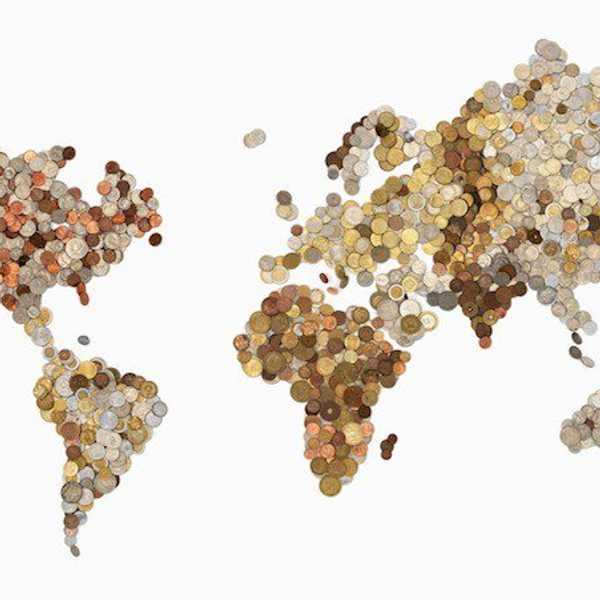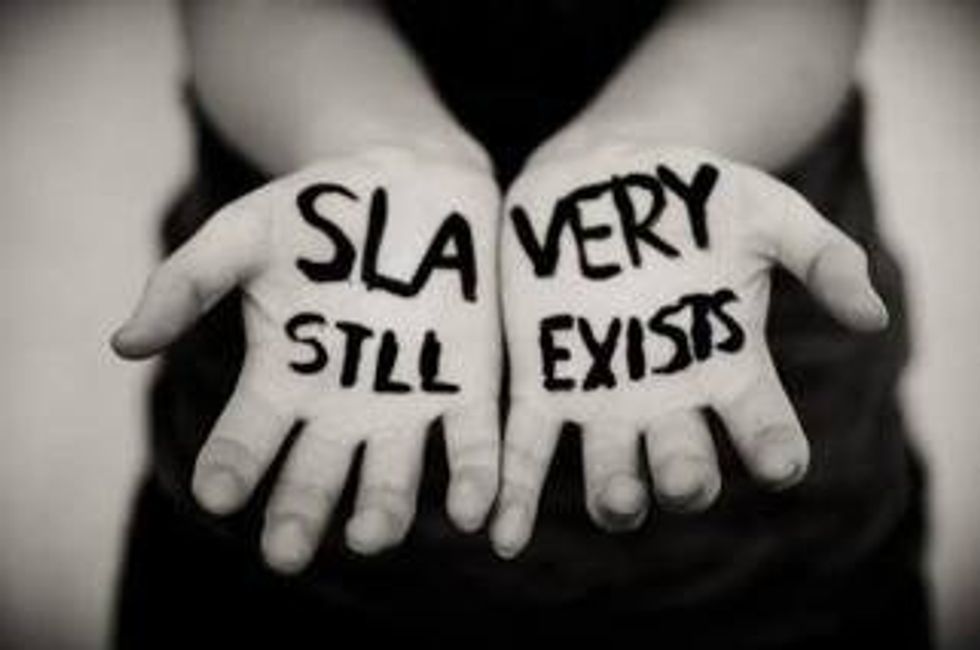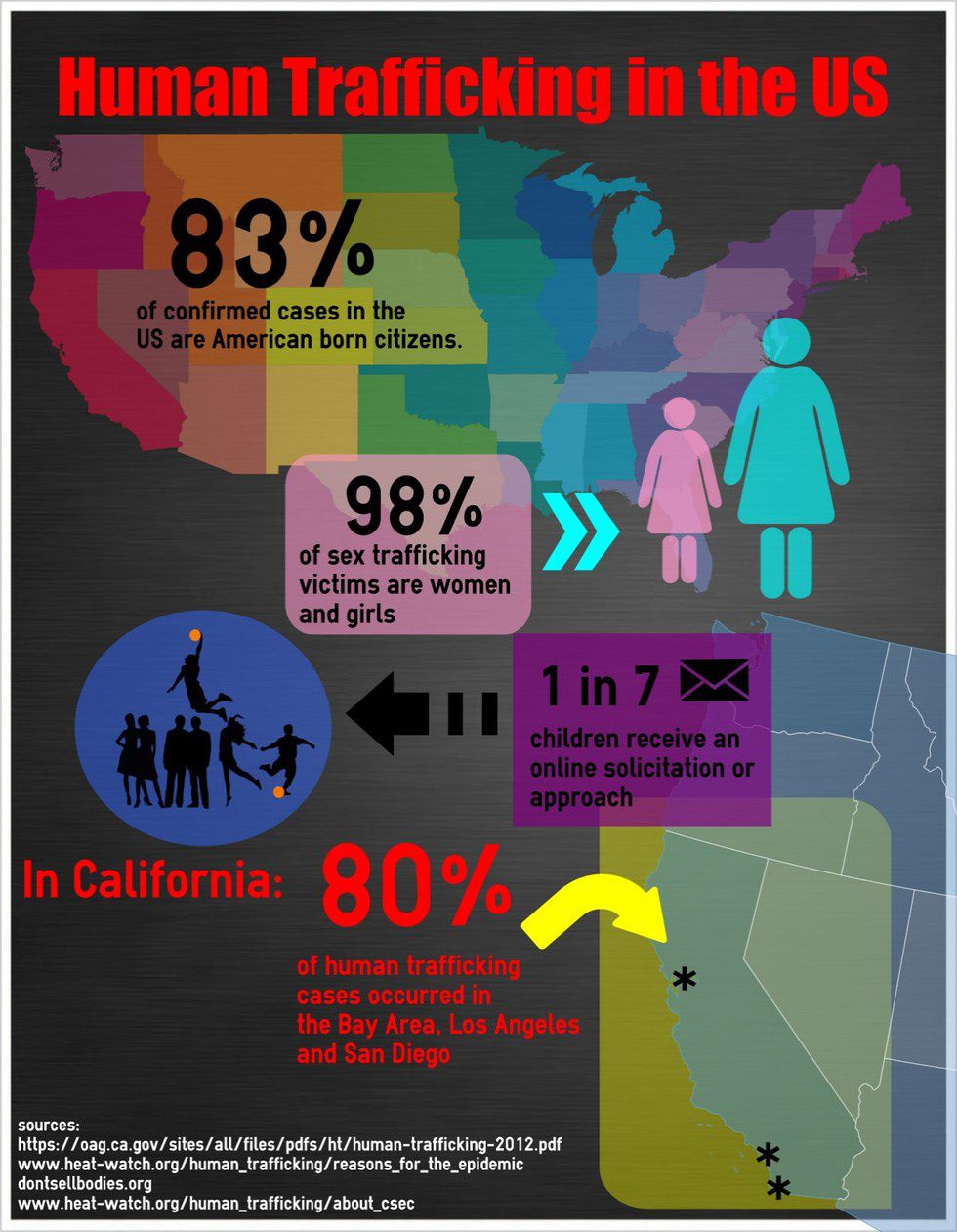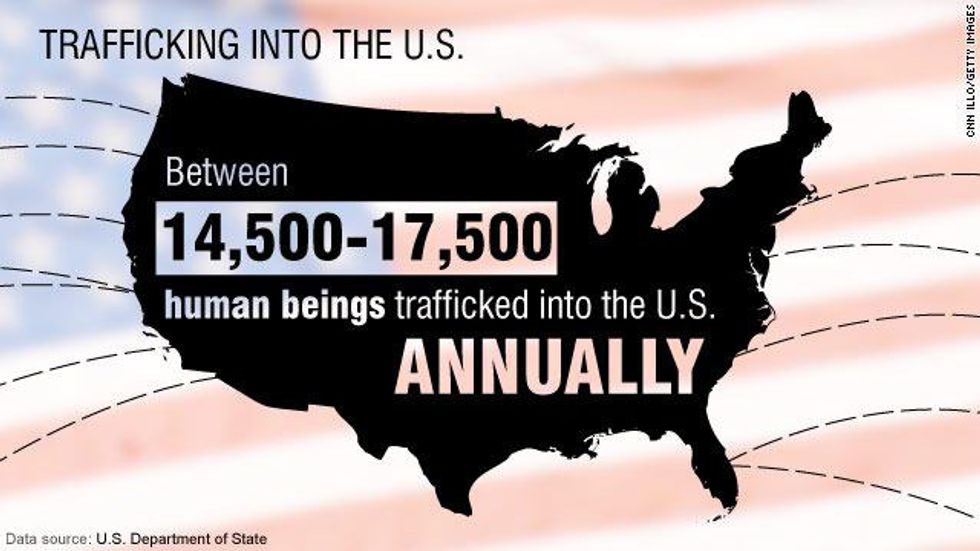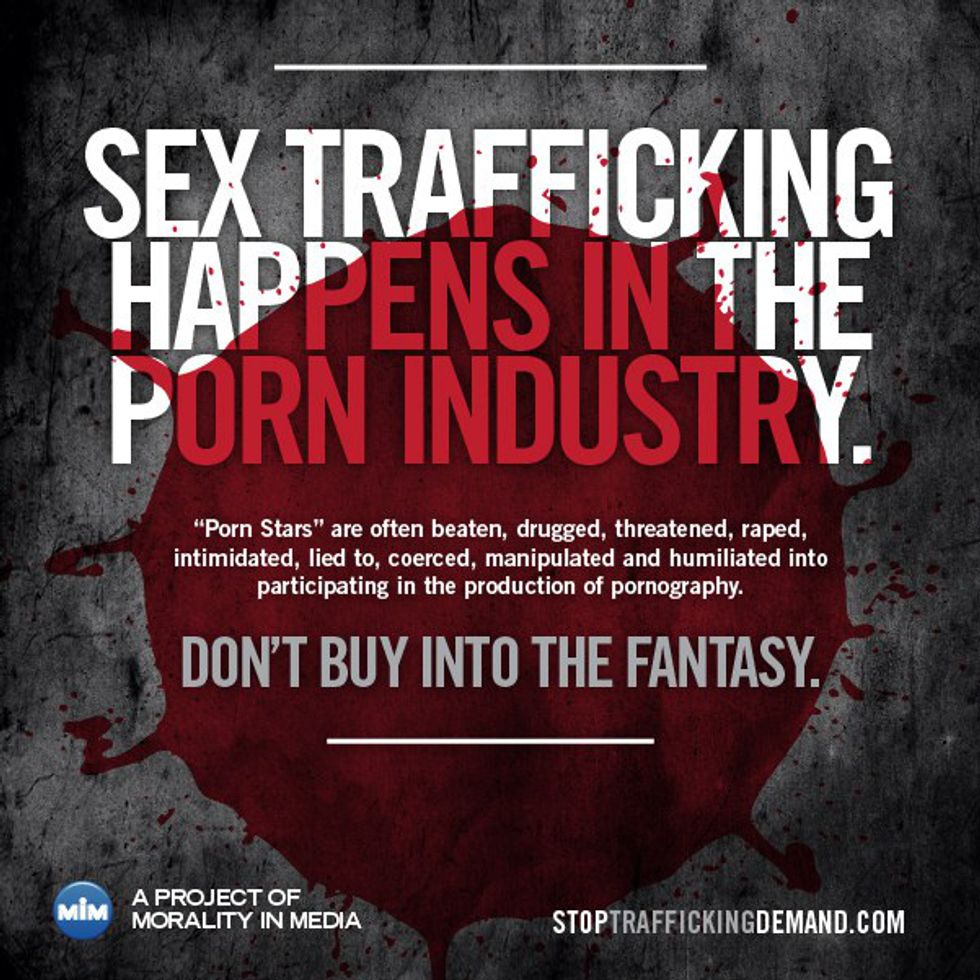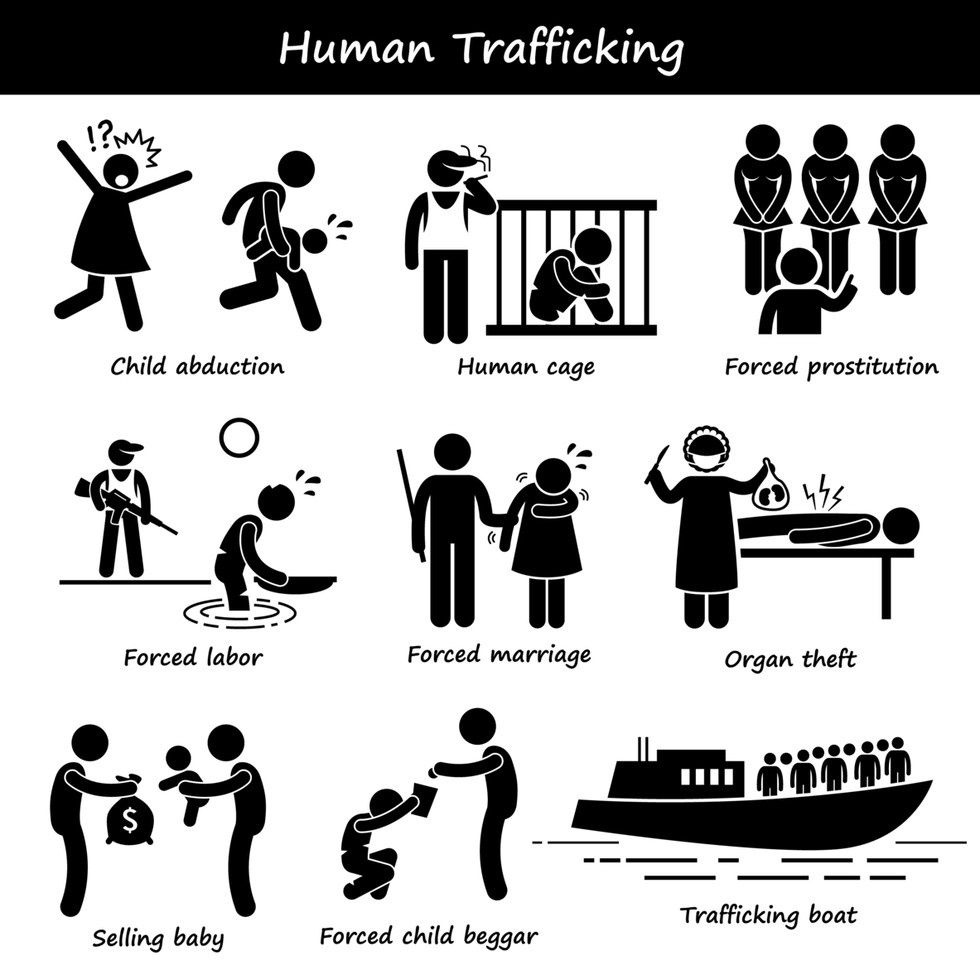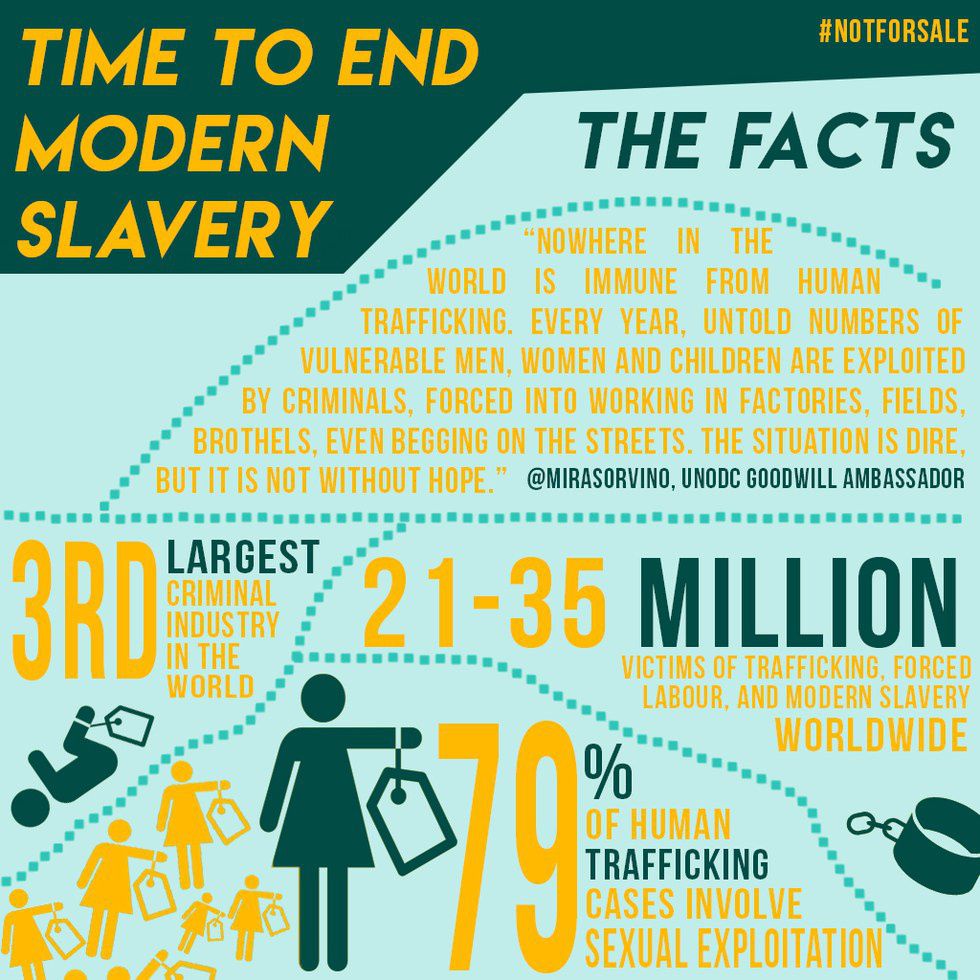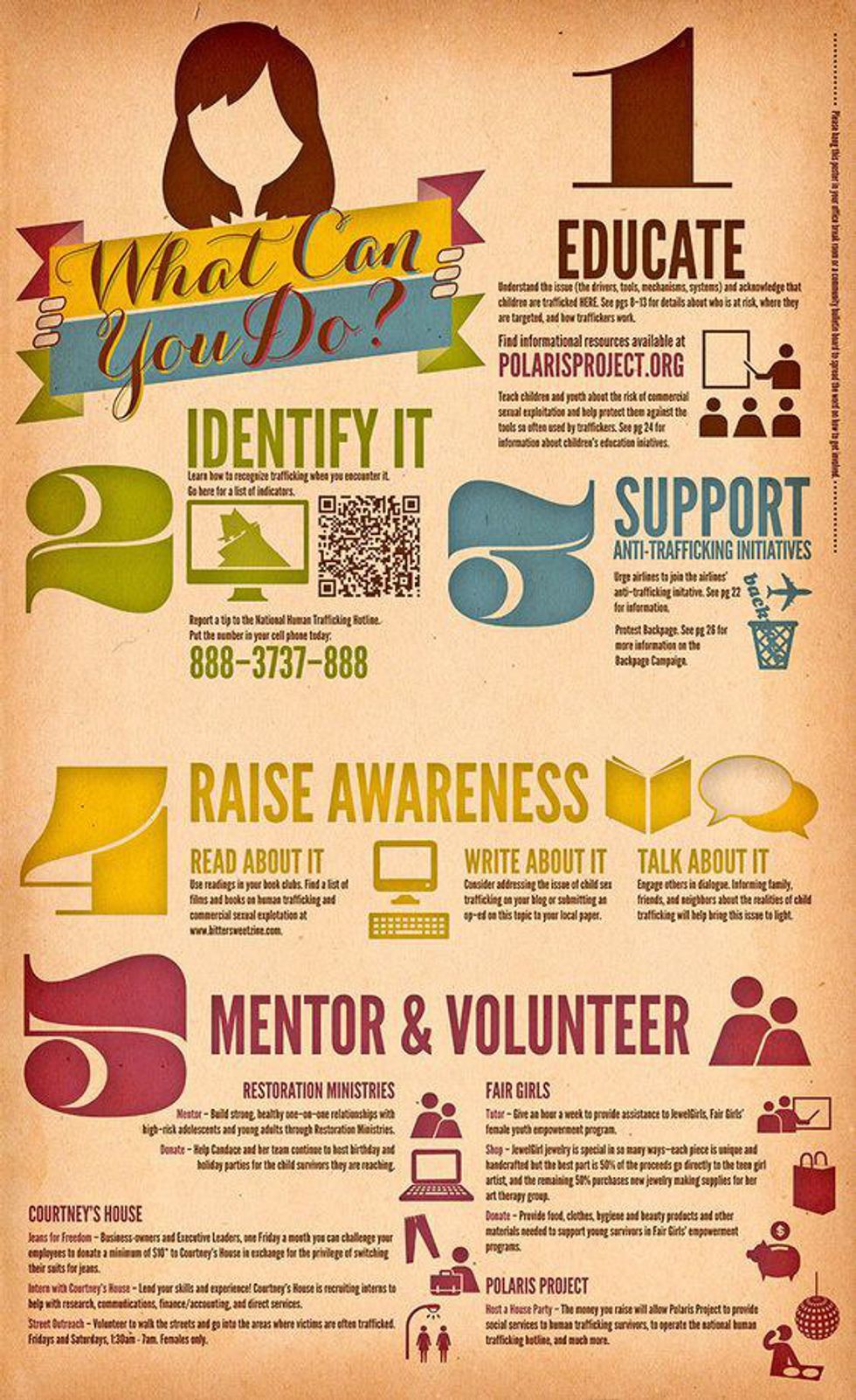Slavery, despite being illegal in the United States for 151 years, still exists in many places, taking many different forms besides forced labor. The National Center for Missing and Exploited Children says an estimated 800,000 children are reported missing in the United States every year. In other underdeveloped countries, this phenomenon is even more common, seeing as human trafficking is the third largest criminal industry in the world.
The United Nations Office on Drugs and Crime website reports, “Every year, thousands of men, women and children fall into the hands of traffickers, in their own countries and abroad. Almost every country in the world is affected by trafficking, whether as a country of origin, transit or destination for victims.” Those who are most susceptible to human trafficking include runaway and/or unsupervised children (mostly girls), and undocumented immigrant children. According to Polarisproject.com, a 2014 study shows that one in every six runaway children is likely to a child sex trafficking victim. 20.9 million people around the world are denied freedom and basic human rights as a result of human trafficking.
The United States is a primary destination for people being trafficked from other countries, though trafficking does not always involve physical movement from one place to another. It is happening in our own backyards, in brothels, farms, factories, seemingly normal suburban homes, and even online. Stoptraffickingdemand.com states, “Many professional performers in pornography are sex trafficked into a hostile environment of sexual exploitation, forced labor and physical abuse.”
However, human trafficking does not only include sexual exploitation and abuse (though that is the most popular form of trafficking). Innocent people are kidnapped every year and forced to perform a variety of jobs (especially in developing countries),in organ, tissue, and cell harvesting, domestic servitude, and child trafficking.
After studying eight major U.S. cities including Atlanta, Dallas, Denver, Kansas City, Miami, Seattle, San Diego, and Washington D.C., the Urban Institute estimated the underground sex economy’s worth between $39.9 and $290 million; however, this number includes all forms of sex work, not just those who are victims of human trafficking. While there does not seem to be a precise annual figure for sex trafficking in the United States, the annual global income for sex trafficking is estimated to be around $150 billion.
A 2014 New York Times article titled “Inside the Scarily Lucrative Business Model of Human Trafficking,” reporter Belinda Luscombe writes, “Back in 2005, the business was estimated at about $44 billion annually. Now, it’s more like $150 billion. This likely reflects a growing awareness of the numbers of people who have been caught up in some sort of bonded labor, rather than actual growth in the business.”
Luscombe also quotes a report from the International Labor Institute, which claims that two-thirds of human trafficking profits come from sexual exploitation “'amounting to an estimated $99 billion [U.S. dollars] per year.’ There’s also a lot of profit from bonded labor among those who [make] approximately $9 billion a year in profits.” However, Luscombe reminds her readers that this is an informal, underground business, so precise numbers are hard to come by
To put this number into perspective, Facebook’s total revenue for 2014 was $17.08 billion worldwide, according to Statista.com. Starbucks’ total revenue for 2015 was $19.6 billion. McDonald’s total revenue for that same year was $25.41 billion worldwide.
The numbers are horrifying, but with growing technology and resources, people can become more informed on the subject and create change, no matter how small. Human trafficking is a huge industry, all over the world, yet it remains a severely under-discussed topic. The U.S. Department of State Website has published a list of “20 Ways You Can Help Fight Human Trafficking,” which includes information like the 24/7 hotline number for the National Human Trafficking Resource Center (1-888-373-7888), a list of goods produced in certain countries that use child labor, and links to various outreach, volunteer, awareness, and fundraiser groups. Watch documentaries. Have conversations. Spread awareness so the issue does not continue to be ignored while the industry continues to grow.


